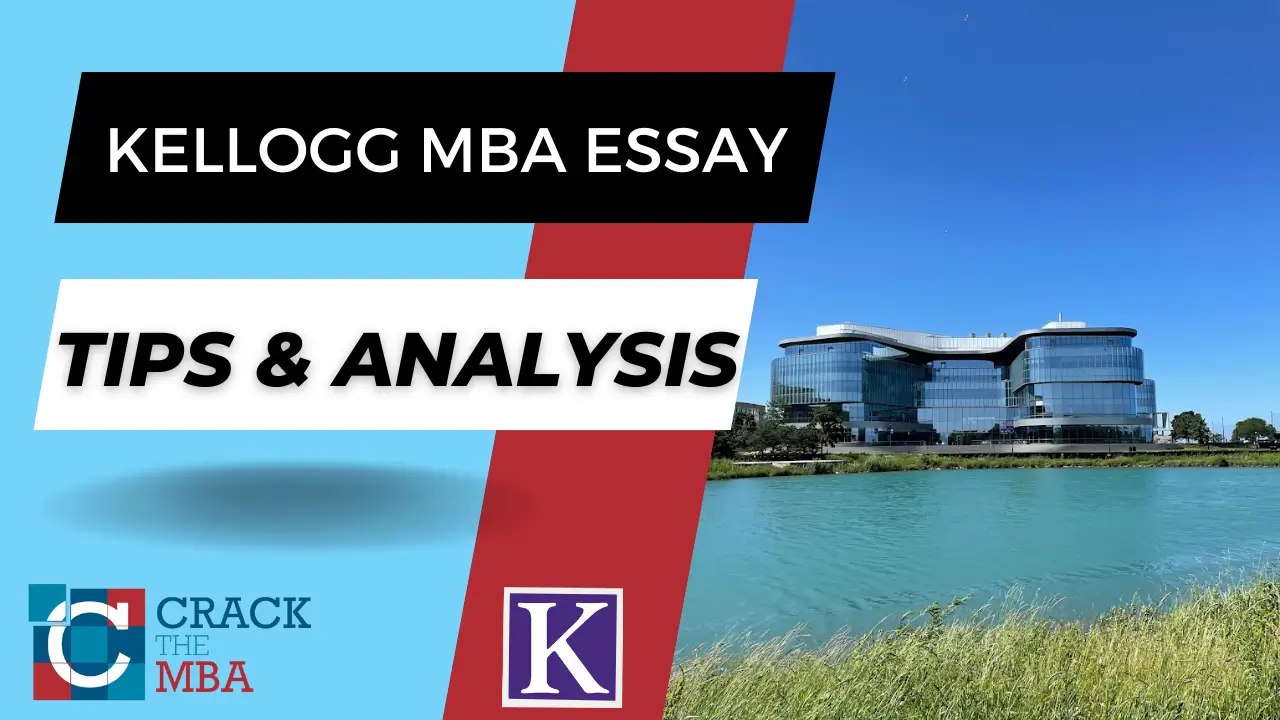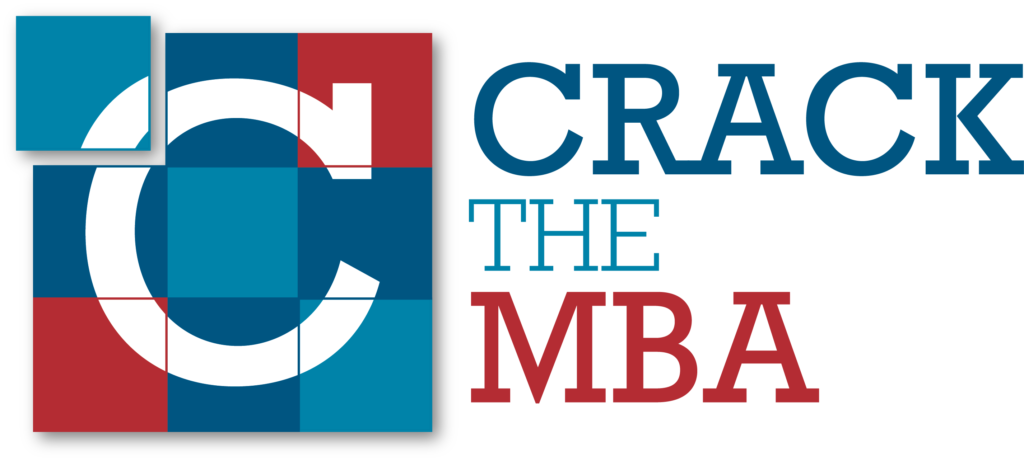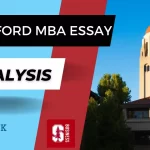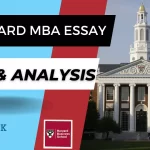2025-2026 Kellogg MBA Essay Analysis and Tips
Consistently ranked among the top MBA programs worldwide and a proud member of the M7 business schools, the Northwestern Kellogg MBA offers a transformative leadership journey for aspiring business leaders. Known for its collaborative culture, world-renowned faculty, and innovative ‘pathways’ learning approach, a Kellogg MBA empowers you to redefine your leadership style and achieve your career aspirations.
If you’re planning to apply, crafting strong responses to the Kellogg MBA essay questions is a critical part of standing out in the competitive admissions process. In this article, we’ll provide detailed insights and expert tips on how to approach the Kellogg MBA essays, backed by proven strategies and references to Kellogg MBA essay examples. Whether you’re working on the short-answer prompts or the long-form leadership essays, this guide will help you create a compelling and cohesive application.

Why Should You Apply to the Kellogg MBA?
A Kellogg MBA ensures real-world experience through its experiential learning curriculum and flexible pathways, designed to develop industry-specific skill sets. Moreover, its focus on diversity, collaboration, and leading with empathy promotes a one-of-a-kind leadership style amongst its students. To add to these experiences, Kellogg’s clubs offer the perfect opportunity for holistic growth, and its strong alumni network, famous for its pay-it-forward culture, could help you develop a lifelong support system.
Kellogg MBA Selection Criteria
The Northwestern Kellogg MBA looks for candidates who demonstrate a strong balance of intellectual capability and emotional intelligence. Here are the key qualities Kellogg values in its applicants:
- High IQ and High EQ: Kellogg seeks individuals who combine analytical thinking with empathy, believing this balance is essential for leadership in a rapidly evolving business world.
- Collaboration: Teamwork is at the heart of the Kellogg experience. Successful applicants showcase strong collaboration skills in their professional and personal lives and highlight these qualities in their Kellogg MBA essays.
- Willingness to Grow and Adapt: Kellogg values a growth mindset and looks for students who are curious, innovative, and adaptable. Candidates should demonstrate how they embrace learning and thrive in dynamic environments.
- Diversity and Inclusion: Kellogg actively seeks candidates who value diverse perspectives and bring unique experiences to the classroom. Effective leadership at Kellogg is rooted in inclusivity and respect for differing viewpoints.
Introduction to Kellogg’s Essays
The Kellogg MBA essays are a critical part of your application, allowing you to present your values, leadership style, and career vision. Kellogg requires applicants to answer two career-focused short-answer questions, two long-form essays, and an optional essay for explaining any extenuating circumstances.
While addressing these Kellogg MBA essay questions, avoid repeating information from your resume or application form. Instead, focus on crafting cohesive, authentic responses that highlight your leadership potential, collaborative mindset, and career aspirations.
Kellogg MBA Essay Questions
Here are the latest Kellogg MBA essay prompts you’ll need to prepare for:
Short-Answer Questions (500 characters each):
- “Share with us the motivations behind your desired industry/function after graduating from Kellogg.”
- “What does a successful career look like five years after you graduate from Kellogg?”
Essay 1 (450 words):
“Intentionality is a key aspect of what makes our graduates successful Kellogg leaders. Help us understand your journey by articulating your motivations for pursuing an MBA, the specific goals you aim to achieve, and why you believe now is the right moment. Moreover, share why you feel Kellogg is best suited to serve as a catalyst for your career aspirations and what you will contribute to our community of lifelong learners during your time here.”
Essay 2 (450 words):
“Kellogg leaders are primed to tackle challenges everywhere, from the boardroom to their neighborhoods. Describe a specific professional experience where you had to make a difficult decision. Reflecting on this experience, identify the values that guided your decision-making process and how it impacted your leadership style.”
Optional Essay (280 words):
Use this space to explain any extenuating circumstances such as choice of recommenders, academic performance concerns, or employment gaps.
Kellogg MBA Essay Tips and Analysis: Summary
Short-Answer Question 1
Prompt: “Share with us the motivations behind your desired industry/function after graduating from Kellogg.” (500 characters)
Reflect on personal and professional experiences that shaped your career goals. Clearly connect your immediate post-MBA goal with your long-term vision, and demonstrate how a Kellogg MBA will help bridge that gap.
Short-Answer Question 2
Prompt: “What does a successful career look like five years after you graduate from Kellogg?” (500 characters)
Define what success means to you five years post-MBA. Discuss the career milestones you aim to achieve and explain how these align with your long-term goals. Highlight the skills and experiences that will position you for future success.
Essay 1
Prompt: “Intentionality is a key aspect of what makes our graduates successful Kellogg leaders… [450 words]”
Structure your essay into five clear parts: state your goals, explain your motivation for pursuing an MBA, why now is the right time, why Kellogg is the ideal fit, and how you will contribute to the Kellogg community. Use specific resources and examples to show thorough research and alignment with Kellogg’s values.
Essay 2
Prompt: “Describe a specific professional experience where you had to make a difficult decision… [450 words]”
Select a professional challenge that required you to make a tough decision. Use the STAR framework—Situation, Task, Action, Result—to structure your response. Highlight the values that guided your decision and explain how this experience shaped your leadership style.
Optional Essay
Prompt: Use this space to explain extenuating circumstances (280 words).
Use this essay only if necessary to clarify issues such as academic inconsistencies, employment gaps, or choice of recommenders. Be honest, take responsibility, and focus on how you’ve grown from the experience. Avoid introducing new achievements or repeating content from other essays.
Kellogg MBA Short-Answer Question 1 Analysis
Essay Prompt:
“Share with us the motivations behind your desired industry/function after graduating from Kellogg.” (500 characters)
This prompt requires a concise yet impactful response that clearly explains the motivations behind your post-MBA career goals.
- Reflect on Your Journey: Consider personal experiences, academic interests, or professional milestones that sparked your interest in the desired industry or function. If relevant, you can briefly reference formative experiences from childhood or early career moments to demonstrate a long-standing passion.
- Connect Short-Term and Long-Term Goals: Showcase how your immediate post-MBA goals align with your broader long-term career vision. Highlight the skills and experiences you aim to acquire in the short term that will help you achieve lasting career success.
- Be Specific and Authentic: Use precise language to convey your career motivations without sounding generic. Focus on what genuinely excites you about the industry or function and how a Kellogg MBA will support your aspirations.
Tip: Stay focused on the why behind your goals rather than the what, and ensure your response ties directly to the skills and leadership qualities Kellogg values.
Kellogg MBA Short-Answer Question 2 Analysis
Essay Prompt:
“What does a successful career look like five years after you graduate from Kellogg?” (500 characters)
This prompt invites you to define success on your own terms and showcase how your post-MBA plans align with that vision.
- Describe Your Five-Year Milestone: Clearly articulate where you see yourself professionally five years after graduation. Whether it’s achieving a specific role, leading impactful projects, or developing critical expertise, focus on a milestone that reflects your personal definition of success.
- Connect to Your Long-Term Vision: Explain how this five-year achievement is a meaningful step toward your long-term career aspirations. Highlight how this milestone prepares you for greater leadership responsibilities or positions you to create a lasting impact in your field.
- Explain Why This Milestone Matters: Go beyond stating the position or achievement—explain why reaching this point is significant to you. Does it demonstrate personal growth, the ability to lead diverse teams, or mastery of a complex business challenge?
Tip: Frame success not only in terms of job titles but also through the impact you create, the skills you develop, and the contributions you make to your organization and community.
Kellogg MBA Essay 1 Analysis
Essay Prompt:
“Intentionality is a key aspect of what makes our graduates successful Kellogg leaders. Help us understand your journey by articulating your motivations for pursuing an MBA, the specific goals you aim to achieve, and why you believe now is the right moment. Moreover, share why you feel Kellogg is best suited to serve as a catalyst for your career aspirations and what you will contribute to our community of lifelong learners during your time here.” (450 words)
This multi-part prompt requires a well-structured and cohesive narrative. Address each part clearly to demonstrate intentionality and strategic thinking—both qualities Kellogg highly values.
How to Approach This Essay:
- Start with Your Career Goals: Briefly state your short-term and long-term goals, ensuring you build on, but don’t repeat, information from your short-answer responses. Focus on what you aspire to achieve and the lasting impact you hope to make.
- Explain Your Motivation for an MBA and Why Now: Reflect on the experiences that led you to pursue an MBA. Are you facing a skills gap that must be addressed to advance in your career? Have you reached a plateau and need new challenges? Use this section to show why this is the perfect inflection point for your professional growth.
- Why Kellogg: Identify 2–3 learning needs and tie them directly to specific Kellogg resources—courses, pathways, experiential learning opportunities, clubs, or leadership labs. This shows that you’ve done thorough research and understand how the Northwestern Kellogg MBA will support your goals. Conversations with current students and alumni can provide valuable, program-specific insights.
- How Will You Contribute: Highlight 2–3 meaningful ways you will contribute to the Kellogg community. Think beyond generic statements—focus on clubs, initiatives, or leadership roles where your past experiences and unique perspective can add real value.
Tip:
Structure your essay clearly, addressing each part of the prompt directly. Keep your tone authentic and forward-looking, demonstrating that you are not only prepared to learn but also to contribute meaningfully to Kellogg’s collaborative environment.
Kellogg MBA Essay 2 Analysis
Essay Prompt:
“Kellogg leaders are primed to tackle challenges everywhere, from the boardroom to their neighborhoods. Describe a specific professional experience where you had to make a difficult decision. Reflecting on this experience, identify the values that guided your decision-making process and how it impacted your leadership style.” (450 words)
This essay is a perfect opportunity to demonstrate how you navigate complex situations with integrity, empathy, and sound judgment—qualities highly valued in the Northwestern Kellogg MBA community.
How to Approach This Essay:
- Select the Right Anecdote:
Choose a professional situation where you faced a significant dilemma or high-stakes decision. Ideally, the scenario should involve a conflict between competing values (e.g., profitability vs. ethics, loyalty vs. fairness) or a decision that impacted multiple stakeholders. - Use the STAR Framework:
- Situation: Set the context clearly and concisely.
- Task: Explain the difficult decision you were responsible for.
- Action: Describe the actions you took, why they were difficult, and how you involved others in the decision-making process.
- Result: Share the outcome and, if possible, quantify the results or impact.
- Highlight the Values That Guided You:
Reflect on the core values—such as integrity, accountability, empathy, fairness—that influenced your decision. Rather than listing values, let them emerge naturally through your actions and reflections. - Show the Leadership Impact:
Conclude by discussing how this experience shaped or refined your leadership style. Did it make you a more empathetic leader? Did it reinforce the importance of collaboration or ethical decision-making? Connect this growth directly to how you plan to lead in the future, especially in line with Kellogg’s leadership philosophy.
Tip:
Avoid theoretical discussions; focus on demonstrating leadership under real-world pressure. Kellogg values action-oriented leaders who can remain true to their principles while driving positive outcomes.
Additional Information Prompt Analysis
Kellogg provides this optional space (280 words) to clarify any extenuating circumstances that may impact how the admissions committee views your candidacy. While it’s optional, use this space strategically if you need to address concerns.
When to Use This Section:
- Inconsistent academic performance or low GPA
- Employment gaps or career transitions
- Choice of a non-traditional recommender
- Personal hardships that impacted your academic or professional trajectory
How to Approach This Prompt:
- Be Honest and Take Responsibility: Acknowledge the situation clearly without placing blame on external factors. Admissions committees appreciate maturity and self-awareness.
- Demonstrate Growth: Focus on what you learned from the experience and how you have grown. Highlight the concrete steps you’ve taken to overcome challenges and avoid repeating mistakes.
- Show Evidence of Improvement: If possible, back up your explanation with evidence—strong performance in later coursework, professional certifications, leadership experiences, or successful career pivots.
Tip:
Avoid using this space to add new accomplishments or make additional arguments for admission. Keep your explanation focused, honest, and growth-oriented.
Conclusion
Kellogg MBA essays offer you the perfect platform to showcase not just your professional accomplishments but also your values, leadership philosophy, and long-term vision. These essays are your opportunity to differentiate yourself from a highly competitive applicant pool by telling authentic, well-structured stories that highlight both your intellectual capabilities and emotional intelligence.
Take the time to reflect deeply on your personal and professional journey before writing. Review successful Kellogg MBA essay examples to understand what makes an impactful response and ensure that your answers align with the values and leadership qualities Kellogg seeks.
Most importantly, approach each of the Kellogg MBA essay questions with intentionality and clarity, ensuring that your narrative ties seamlessly across all parts of your application. With thoughtful preparation, you can craft essays that not only impress the admissions committee but also set you on a clear path toward achieving your career aspirations through the Northwestern Kellogg MBA program.
Ready to Craft a Winning Kellogg MBA Application?
At Crack The MBA, we specialize in helping ambitious applicants create powerful, authentic, and strategically crafted applications for top business schools, including the prestigious Northwestern Kellogg MBA.
From identifying compelling stories to perfecting your responses to the toughest Kellogg MBA essay questions, our experienced consultants guide you every step of the way. Backed by a Wharton MBA graduate and a track record of 200+ successful admits and $3M+ in scholarships last year alone, we know exactly how to help you stand out.
Whether you’re looking for feedback on your first draft or need help building a winning application strategy, we’re here to support you.
Ready to take the next step?
FAQs
Q1. How important are the Kellogg MBA essays in the admissions process?
The Kellogg MBA essays play a critical role in helping the admissions committee understand your leadership potential, career goals, and personal values. Well-crafted essays can differentiate you from other candidates with similar academic and professional backgrounds.
Q2. What should I include in my Kellogg MBA essays to stand out?
To stand out, focus on sharing authentic experiences that demonstrate leadership, collaboration, and a growth mindset. Review successful Kellogg MBA essay examples to understand how to craft a cohesive narrative and tie your goals directly to Kellogg’s unique offerings.
Q3. How do I approach the short-answer Kellogg MBA essay questions?
Be concise and intentional. Clearly explain your motivations and career goals, ensuring they align with your long-term vision. Use the limited character count wisely to demonstrate clarity of thought and purpose.
Q4. Can I refer to Kellogg MBA essay examples while writing my essays?
Yes, reviewing Kellogg MBA essay examples can help you understand how successful applicants structure their responses. However, ensure your essays remain original and reflect your unique experiences and aspirations.
Q5. How should I approach the optional essay in the Kellogg MBA application?
Use the optional essay only to explain extenuating circumstances such as academic gaps, low grades, or choice of recommenders. Avoid using it to add new achievements or repeat information already covered elsewhere.
Author
Related Posts:
Recent Posts
Archives
Ready for Expert Guidance?
Get personalized support to craft your winning MBA application.
Schedule Free Consultation






